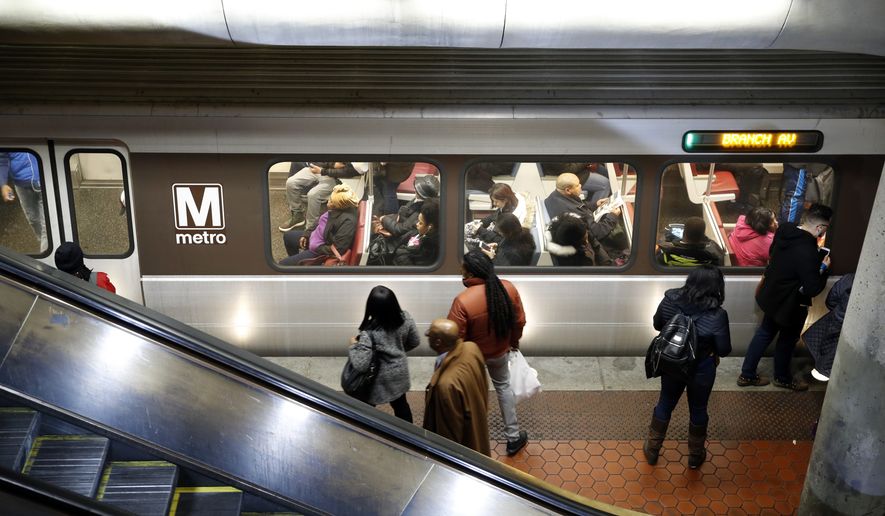D.C. Mayor Muriel Bowser is pushing for late-night Metro service as a new study on the city’s nightlife industry shows that the subway’s hours of operation greatly affect businesses.
“Washington, DC is no longer a one-business, government town with a 9-5 schedule. We are a city of innovators, creatives and change-makers — 24 hours a day, 365 days a year,” Miss Bowser said in a press release for her #KeepMetroOpen rally Wednesday.
“We established the Office of Nightlife and Culture to ensure we’re building a nightlife industry that works for everyone — where people can live, work, and play side by side. What we know today is that one of the simplest and most obvious ways to support nightlife workers from across the region is to return late-night service at Metro,” she said.
The District’s first-ever study on the economic impact of the nightlife industry was released Wednesday. It found that about a third of the industry’s revenue is garnered between 9 p.m. and 5 p.m. Business during those hours account for more than 68% of the revenue for nightclubs and 50% of that for bars.
More than 180 business owners, about a third of those surveyed, listed transportation for employees as a challenge, and about 54% of the nightlife workforce lives outside the District.
Shawn Townsend, director of the Mayor’s Office of Nightlife and Culture, said the report’s data motivated him and the mayor to hold a rally in support of extended Metro rail hours.
“The overwhelming response from the industry is that Metro has impacted the businesses directly by losing patrons or they have had to subsidize workers, assisting workers to get to and from the business,” Mr. Townsend told The Washington Times.
Before June 2016, when Metro launched its SafeTrack maintenance program, subway trains had run until midnight on weekdays and 3 a.m. on weekends. Trains currently run until 11:30 p.m. Monday-Thursday, 1 a.m. Friday-Saturday and 11 p.m. Sunday.
A Metro spokesperson noted that the regional transit agency’s fiscal 2021 budget would extend rail service until 2 a.m. Friday-Saturday and midnight Monday-Thursday, beginning July 1.
The D.C. Bar and Restaurant Workers Alliance said its representatives planned to testify later Wednesday at the Metro Board’s budget meeting, where they would argue against bus route reductions and fare increases, and advocate for late-night train service.
“Workers are often limited to a finite pool of transportation options when commuting to work and especially on their way home after a shift,” alliance Vice President Zachary Hoffman said in a written statement. “As the region’s comprehensive transportation service, Metro must meet the needs of its riders. This budget does not adequately serve our residence or the workers that need a reliable and safe way home.”
The nightlife industry — which includes restaurants, bars and performance venues — is comprised of about 2,400 establishments and generates $562 million in tax revenue for the city.
Mr. Townsend said the industry’s success in the District speaks for itself, especially compared to New York City’s nightlife industry, which generates nearly $700 million in tax revenue from more than 20,000 establishments. New York City’s nightlife industry also generates $1.1 billion in tax revenue for the state.
• Sophie Kaplan can be reached at skaplan@washingtontimes.com.




Please read our comment policy before commenting.